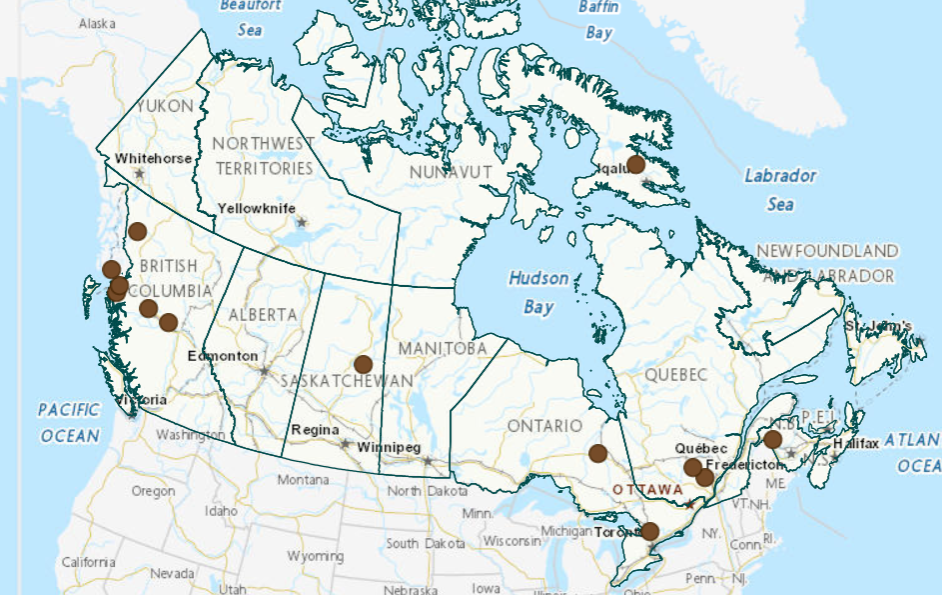The budget: Where are renewables?
Prime Minister Mark Carney promised to make Canada a “clean and conventional energy superpower” but we’re dubious about some Major Project choices he’s making. Fossil fuels and pipelines are old energy. The future is renewables.
Review any of the sources below, then sent a message to the Prime Minister. Short and sweet is fine! Here is his contact info.
Copy your local Member of Parliament:
Kristina Tesser Derksen, Milton East Halton Hills South
Michael Chong, Wellington-Halton Hills North
Major Projects map
Click to browse projects referred to the Major Projects Office for further assessment and consultations, and learn more about any of the projects.
The liquid natural gas (LNG) Ksi Lisims plant in BC – More fossil fuels! Lifecycle emissions can be worse than coal, says the Suzuki Foundation. And Indigenous groups want more consultation. Watch here.
The plan for small nuclear reactors at Darlington is also unfortunate. They’re expensive, take years to build, come from an American company with relaxed safety standards, and require US enriched uranium. Tell the Prime Minister to choose safer, cheaper renewables!
Clean energy is winning. Solar and wind have dropped dramatically in price. Around the world 92.5% of new power capacity added to the grid in 2024 came from renewable energy sources.
Here’s a letter from 105 Canadian groups asking for an east-west renewables grid.
From the New York Times newsletter November 12:
Countries like Brazil, India and Vietnam are rapidly expanding solar and wind power. Poorer countries like Ethiopia and Nepal are leapfrogging over gasoline-burning cars to battery-powered ones.
China makes that possible, exporting solar panels, wind turbines, batteries and electric vehicles all over the developing world while investing billions in factories that make those things in the nations where they are sold.
The falling price of China’s renewable tech has allowed developing countries to satisfy a larger percentage of their energy needs internally. It reduces their reliance on imported fuel and develops their economies. Developing nations are delivering what appears to be good news for the planet.



